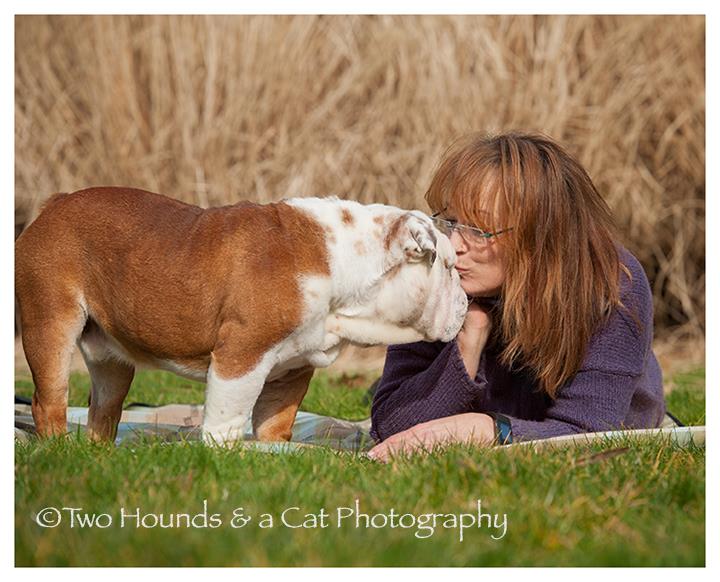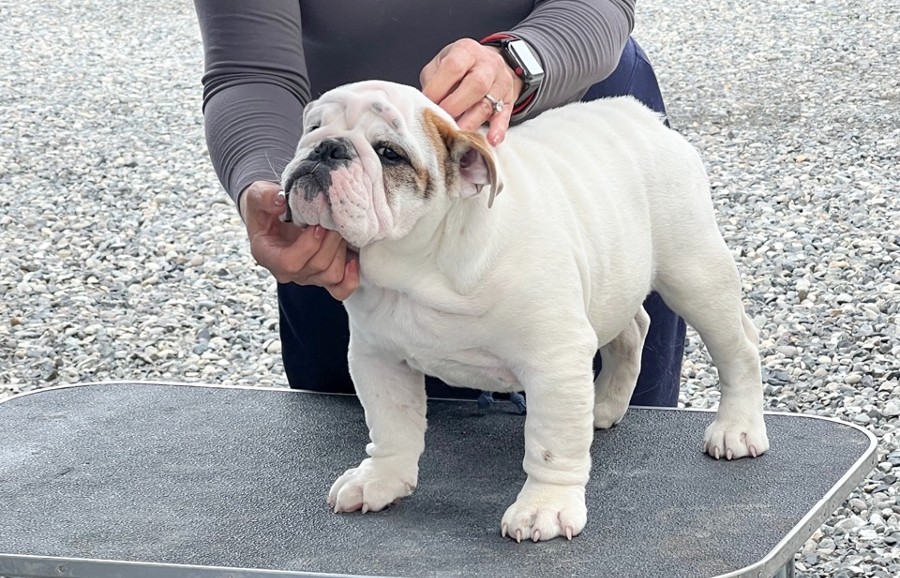The Average Life Expectancy of a Bulldog in 2019
The Average Life Expectancy of a Bulldog in 2019

If you’ve been a life-long bulldog parent, you may have noticed that the bulldogs you’ve owned in the last several years have lived longer than the bulldogs you raised in previous decades. This is no coincidence.
A healthier diet, better breeding practices, and advances in veterinary medicine have all contributed to the bulldogs of today living longer, healthier and more active lives.
Take what bulldog owner Bonnie Roberts mentioned in an interview with The Bulldogger, for example:
“We have owned bulldogs since 1970. At that time, a seven or eight year life span was normal. Today, I would say 10 is common and 12+ is not too unusual.”
How long do bulldogs live in 2019?
Short answer: 10 to 12 years, according to the American Kennel Club (AKC).
Long answer:
Critics of the bulldog breed often point to the bulldog’s relatively low life expectancy rate as proof that bulldogs are unhealthy or even “unnatural.” While it’s true that the average bulldog does not live as long as a number of other breeds, like the chihuahua, for example, to say that a bulldog “doesn’t live long” is inaccurate.
Consider this:
According to the American Kennel Club (AKC), the average dog lives between 10 to 15 years.
By contrast, the average bulldog lives an average of 10 to 12 years. This puts the bulldog breed right in the range of normal.
This is the same average lifespan as the Boxer, another medium-sized dog, and is actually longer than the average life expectancy of a number of large breeds.
In fact, on average, the bulldog lives longer than the:
- Bernese Mountain Dog (7 to 10 years)
- Great Dane (8 to 10 years)
- Irish Wolfhound (8 to 10 years)
- Dogue de Bordeaux (9-11 years)
Is the Bernese mountain dog inherently unhealthy because it doesn’t have the same life expectancy as the Maltese? Of course not. The same is true of the bulldog.
Of course, bulldogs don’t live anywhere near as long their owners would like. If all of us had our way, our bully babies would live as long as the chihuahua (15 to 17 years) or the Pomeranian (14 to 16 years).
But as bulldog owners continue to educate themselves on proper breeding best practices and preventative health measures, who’s to say that a longer life expectancy won’t be possible in the future?
Females v. males: Who lives longer?
When it comes to average lifespan, is there a difference between male dogs and female dogs? While there’s no hard evidence, anecdotal research suggests that females may live longer. For instance, the results of a survey conducted by The Bulldogger in 2015 found that female bulldogs tend to live slightly long than male bulldogs.
What affects life expectancy?

In the same 2015 study by The Bulldogger, bulldog breeders were asked to list the factors they felt contributed to the better-than-expected life expectancy of today’s bulldogs.
The factors were as follows:
- Diet—One of people The Bulldogger interviewed was Neil Koeniger. He has been raising, showing and breeding bulldogs for more than 20 years and suggests that feeding bulldogs a grain-free diet improved life expectancy. He also suggests avoiding “over-vaccinating.”
- Weight maintenance— Just like with humans, bulldogs tend to gain more weight as they get older. And also like with humans, carrying more weight can be unhealthy.
- Exercise—Bulldogs may have a reputation for being “lazy,” but they are far from couch potatoes. They need regular exercise as much as any other breed, and that should include daily walks.
- Good breeding—Many of the health problems bulldogs experience are directly related to inbreeding. It’s vitally important to research a bulldog’s genealogy prior to adoption.
Bonnie Roberts told The Bulldogger, “I believe the longer lifespan can be attributed to the improved quality of dog food and veterinary medicine, combined with better breeding practices. Cancer seems to be the X-factor in shortening their lives.”
The leading causes of early death:
According to research cited in an article in the Journal of the American Veterinary Medical Association (JAVMA), the following are the top three causes of early death for bulldogs:
Cancer—Though cancer tends to affect large dogs more frequently than medium or small dogs, it remains one of the leading causes of deaths among older dogs of all breeds.
Some of the warning signs of cancer include lumps, wounds that refuse to heal and weight loss.
Trauma—Trauma is one of the leading causes of death among bulldog puppies and young dogs of all breeds. Trauma can include anything from car accidents and dog fights to drowning and poisonous snake or insect bites. Fortunately, unlike cancer, trauma is preventable. Keep your bulldog on a leash whenever you are outside and maintain a careful watch on him when he’s in the presence of other pets or young children.
Read: Summer Safety Tips for Bulldogs
Respiratory Disease—According to research cited by the American Veterinary Medical Association (AVMA), respiratory disease is the leading cause of death among bulldogs. Due to the bulldog’s elongated soft palate, it’s not uncommon for a bulldog to struggle to breathe during physical exertion. Monitor your bulldog’s breathing during walks or when he’s playing outside, especially during the warmer months. If he’s developed a cough, is wheezing or choking, or has difficulty eating, you should take your bulldog to the veterinarian as soon as possible.
Read: How to Tell Your Bulldog is Overheating
Obesity—On average, obese dogs don’t live as long as dogs with a healthy weight. In fact, obesity shortens a dog’s life an average of two years. This is due to the fact that the extra pounds can lead to diabetes, pancreatitis and respiratory conditions, among other problems.
Ways You Can Help Your Bulldog Live a Long and Healthy Life

Unfortunately, there is no way to guarantee with full certainty that your bulldog will live past his twelfth birthday. Accidents happen and cancer and other unpredictable illnesses can strike at any time. There are, however, a few things you can do to increase the odds. Below are a few of the most important.
-
Choose your breeder carefully
Choosing a healthy bulldog starts with choosing a reputable breeder. It can’t be emphasized enough the importance of picking a bulldog who comes from a healthy bloodline. Not only do genetics play a huge role in a dog’s life expectancy rate, but it also influences how well your bulldog will be able to breathe, see and move throughout his or her life.
Read:
How to Pick a Show-Quality Puppy
9 Important Questions to Ask Your Bulldog Breeder
-
Take your bulldog in for regular vet visits
Even if your bulldog has superb genes and appears to be in top physical shape, it’s important to bring your bulldog for regular check ups. Veterinarians recommend scheduling two check ups per year—and this should include a dental exam.
-
Give your bulldog a lot of love and attention
Just like with humans, a bulldog that feels loved and “a part of the family” will be happier—and healthier—than a bulldog that is ignored, neglected or abused. Show your bulldog you love her by playing with her and giving her daily ear, neck and belly scratches.
Resources:
The Bulldogger—The official publication The Bulldog Club of America, Inc. (March, 2015). Issue Number 151
Larkin, Malinda. (2011). Study examines causes of death in dogs. Journal of the American Veterinary Medical Association.
About Cascade Bulldogs: Cascade Bulldogs is a bulldog blog that provides information on how to raise, train and show bulldogs. It is managed by bulldog owners Gail and Eddie Harris.










